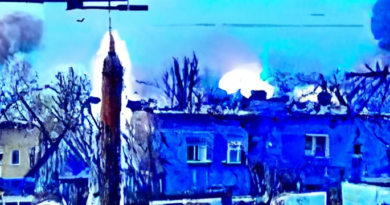Reps. Bishop, McAdams offer contrasting views on measure targeting QAnon

WASHINGTON, D.C. — A meaningless shake of the fist or a means to condemn a group touting extremist views?
“The FBI assessed that fringe political conspiracy theories, such as QAnon, are very likely to motivate some extremists to engage in violent acts. Condemning those that would commit acts of terror, and condemning the ideologies that encourage such extremism should be a nonpartisan issue,” McAdams, a Democrat from Salt Lake City who represents Utah’s 4th District, said Monday.
Bishop, though, saw the measure as something other than an earnest attempt to condemn a group that’s garnered increasing attention for its embrace, as H.R 1154 puts it, of “virtually every popular conspiracy theory of the last several decades.” He saw it as a “meaningless resolution” pushed by House Speaker Nancy Pelosi to promote the re-election bid of Rep. Tom Malinowski, a New Jersey Democrat and the measure’s sponsor.
“Tired of the way Pelosi is running the place,” said Bishop, a Brigham City Republican who represents the 1st District, which includes Weber County and northern Utah. H.R. 1154, he went on, “was a resolution to help this person’s reelection bid.”
His was a protest vote over procedural questions, Bishop said. The no vote doesn’t reflect any public policy stance, he continued, expressing ambivalent sentiments about QAnon. “Not really sure, but not impressed with what I’ve heard so far,” Bishop said.
Neither Stewart, a Republican from Farmington, nor Curtis, a Provo Republican, immediately responded to queries seeking comment on their votes for H.R. 1154.
In a statement, Pelosi, a California Democrat, echoed the worries expressed by McAdams and also lauded Malinowski for his leadership in fighting “deadly disinformation and violent ideologies.” Malinowski tweeted on Sept. 30 that he had received six death threats since the day before after QAnon issued a statement targeting him for seeking passage of H.R. 1154.
H.R. 1154 states, in part, that the FBI “has assessed with high confidence that ‘fringe political conspiracy theories,’ including QAnon, ‘very likely motivate some domestic extremists, wholly or in part, to engage in criminal or violent activity.’” Those theories, it goes on, “very likely encourage the targeting of specific people, places and organizations, thereby increasing the likelihood of violence against these targets.”
*** This article has been archived for your research. The original version from Standard-Examiner can be found here ***


